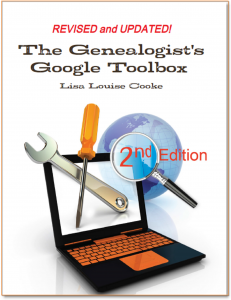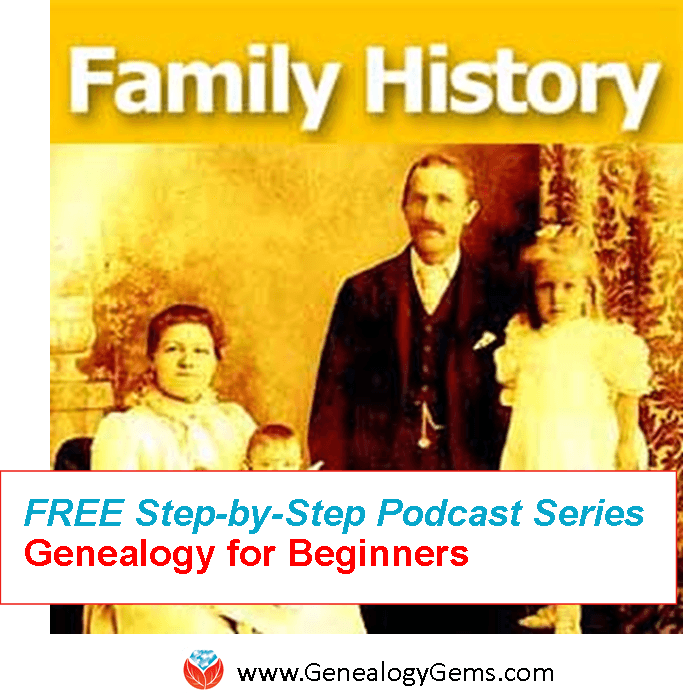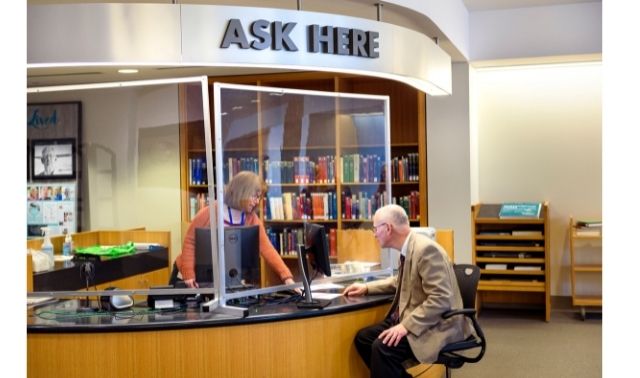Lisa Louise Cooke Coming to Canada: Ontario Genealogical Society Conference 2016
Lisa Louise Cooke will be a featured keynote presenter at the Ontario Genealogical Society conference 2016, June 3-5 in Toronto, Canada. 
The biggest genealogical event in Canada is coming–and Lisa Louise Cooke will be there! Members of all 34 branches and special interest groups of the Ontario Genealogical Society and other family historians from across North America and around the world will meet in Toronto from June 3-5, 2016 for inspiring lectures, workshops, displays, and other learning opportunities.
Here’s why people are excited about the Ontario conference:
As an internationally-renowned genealogy technology innovator, Lisa will deliver a plenary lecture relating to the conference’s theme, “On the Cutting Edge.” This Saturday morning keynote will be “Future Technology and Genealogy: 5 Strategies You Need.” The audience will be treated to a vision of genealogy research as technology speeds ahead into the future. Lisa will teach five key strategies to employ right now that will make the ride easier–and the results more exciting–than ever.
The Scoop
WHAT: Ontario Genealogical Society Conference 2016
WHEN: June 3-5, 2016
WHERE: International Plaza Hotel, 655 Dixon Road, Toronto
REGISTER: Click here for full conference information
Attend Lisa’s Sessions
- “Using Google to Enhance Your Genealogy Research,” a workshop outlining a “Google Search Methodology for Genealogy.” The workshop features a variety of free Google tools that can help solve genealogical challenges. You’ll also discover advanced Google search strategies you may not be using but are “must-haves” for high-quality Google search results. You will walk away with a proven Google search methodology, and powerful tips and tricks you can use right away.
- “How to Create and Leverage Your Own YouTube Channel for Genealogy.” Don’t let the video revolution pass you by! YouTube Mobile receives more than 100 million views a day and is the #2 search engine on the planet. It’s becoming the first place many people turn to for answers, including fellow genealogists. Video content on your own website can also drive more traffic to your site. This presentation shares Lisa’s tips and tricks for creating a robust YouTube channel that will power-boost your genealogical efforts.
Visit Lisa in the Exhibit Hall
Lisa will be in the exhibit hall at her booth (next to Shop the Hound) signing books, and answering questions. Lisa’s daughter Lacey will be there helping you at the booth. She will have special discounts and a money-saving conference bundle just for this conference.
You won’t want to miss the exhibit hall this year. OGS Conference 2016 will feature a spacious 10,000-square-foot Expo Hall, just steps away from the lecture rooms. There will be displays from genealogical and historical organizations, and commercial exhibitors. You’ll also have an opportunity to check in with all the various branches of OGS and see their specific publications.
About the Ontario Genealogical Society Conference 2016
The entire conference offers something for everyone, and with its convenient location in Toronto, is an easy over-the-border jaunt for many U.S. residents, too. Thursday’s preconference activities include a boot camp for librarians and a session on business skills for genealogists. Friday’s events include off-site tours (World War I history or genetics interest) and workshops including Lisa’s. Saturday’s calendar leads with Lisa’s keynote and then explodes into 24 concurrent sessions and other exciting sponsored events.
Registration
This quick link will take you right to online registration. There are full and partial registration options.
Can’t Make It to the Ontario Genealogical Society Conference 2016? Don’t Fret!
 Wish you could catch Lisa’s Google search methodology workshop? Don’t worry–it’s fully described in her book, The Genealogist’s Google Toolbox. This 2nd edition was completed revised and updated for 2015, with thorough, step-by-step instructions on Google search techniques and new chapters on searching for common surnames, Google Scholar and Google Patents (yes, you can use these for genealogy!). Screenshots and detailed explanations will lead you through Google Alerts, Gmail, Google Books, Google Translate, YouTube and Google Earth (multiple chapters on THIS powerful 3D map).
Wish you could catch Lisa’s Google search methodology workshop? Don’t worry–it’s fully described in her book, The Genealogist’s Google Toolbox. This 2nd edition was completed revised and updated for 2015, with thorough, step-by-step instructions on Google search techniques and new chapters on searching for common surnames, Google Scholar and Google Patents (yes, you can use these for genealogy!). Screenshots and detailed explanations will lead you through Google Alerts, Gmail, Google Books, Google Translate, YouTube and Google Earth (multiple chapters on THIS powerful 3D map).

 Premium member Kevin:
Premium member Kevin:


